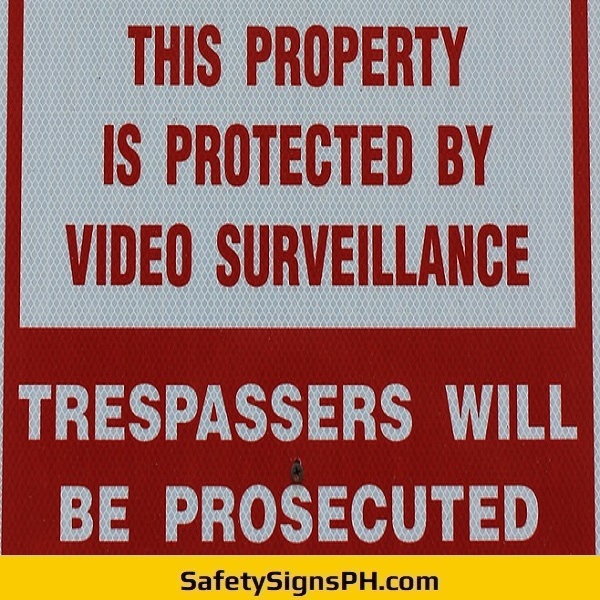    |
| The presence of closed-circuit television (CCTV) cameras is becoming increasingly ubiquitous. While the cameras themselves act as electronic eyes, passively observing and recording, the accompanying signage plays a crucial role in shaping behavior and ensuring the effectiveness of these surveillance systems. CCTV signs, often overlooked, are more than just simple warnings; they are vital communication tools that contribute to crime deterrence, public safety, and legal compliance within the Filipino context. The primary function of CCTV signage is to deter potential criminal activity. By clearly indicating the presence of surveillance, these signs act as a visual deterrent, discouraging individuals from engaging in illicit behavior. Knowing they are being watched can significantly alter a person's actions, making them less likely to commit theft, vandalism, or other offenses. In a country with a high population density and varying levels of security, the psychological impact of CCTV signage can be particularly potent, fostering a sense of vigilance and discouraging opportunistic crime. The presence of a sign, even if the camera is non-functional, can still have a deterrent effect, highlighting the inherent value of this simple yet powerful tool. Beyond crime prevention, CCTV signage contributes significantly to public safety. In areas prone to accidents, such as busy intersections or construction zones, signs serve as a reminder to be cautious and aware of one's surroundings. Furthermore, in the aftermath of an incident, CCTV footage, made possible by the presence of the cameras and indicated by the signage, can be invaluable in providing evidence for investigations and identifying the responsible parties. This is particularly important in the Philippines, where traffic accidents are unfortunately common. CCTV footage combined with appropriate signage can not only help in resolving disputes but also in improving traffic management and accident prevention strategies. Moreover, CCTV signage plays a critical role in ensuring legal compliance and ethical considerations. In the Philippines, the Data Privacy Act of 2012 (Republic Act No. 10173) necessitates transparency regarding the collection and use of personal data. CCTV systems, as data-gathering tools, fall under the purview of this law. Clear and conspicuous CCTV signage informs individuals that they are being recorded, allowing them to make informed decisions about their actions and movements. This complies with the principles of transparency and accountability, protecting individuals' right to privacy and ensuring ethical operation of surveillance systems. Failure to display appropriate signage can expose the owner or operator of the CCTV system to legal ramifications and reputational damage. However, the effectiveness of CCTV signage hinges on its clarity, placement, and maintenance. Signs should be easily visible, legible, and written in languages understood by the local population, including Filipino and other regional dialects. They should be strategically positioned in areas of high visibility and high-risk, maximizing their impact. Regularly maintaining the signs ensures that they remain in good condition and continue to serve their purpose effectively. A faded or damaged sign loses its deterrent power and can even create confusion. In conclusion, CCTV signage in the Philippines is far from being a mere formality. It is a crucial element of a comprehensive security strategy that contributes to crime deterrence, public safety, and legal compliance. By acting as silent guardians, these signs communicate the presence of surveillance, shaping behavior and fostering a safer environment for communities across the archipelago. As the use of CCTV technology continues to expand, ensuring the proper display and maintenance of clear, informative signage will remain paramount in maximizing its benefits while upholding the principles of privacy and ethical conduct. Searching for a reliable maker and supplier of customized security and CCTV signs in the Philippines? You're in the right spot! Feel free to contact us today to request a free, no-obligation quotation. Related Product: |
 |





























No Comments yet. Add your Comments now!
Post a Comment